Dreams are often parables that contain hidden treasure
if you’re willing to search for it. The condition of your heart
directly affects your spiritual insight and understanding.
Are you distracted or captivated by the gift God may
be giving you in your dreams? …It may reflect the condition of your heart.
Jesus only spoke in parables to the unbelieving because
He wanted them to have to apply their heart. He says in Matthew 13:13-15
This is why I speak to them in parables: “Though seeing, they do not see;
though hearing, they do not hear or understand. 14)
In them is fulfilled the prophecy of Isaiah: ”
‘You will be ever hearing but never understanding;
you will be ever seeing but never perceiving. 15)
For this people’s heart has become calloused;
they hardly hear with their ears, and they have closed their eyes.
Otherwise they might see with their eyes, hear with their ears,
understand with their hearts and turn, and I would heal them.’
Symbol
I sort of smile, when reading about something were the author goes on with his dissertation ignorant about the many issues surrounding the topic he is talking about specifically one sided explanations, that ignore the deep power of symbols, and the use the ancients had for them way before we come to lost our way around them, this a profound loss for the understanding of an issue, even the explanation of the symbol itself!
According to the dictionary
symbol
/ˈsɪmbəl/
noun
1.
something that represents or stands for something else, usually by convention or association, specifically a material object used to represent something abstract
2.
an object, person, idea, etc, used in a literary work, film, etc, to stand for or suggest something else with which it is associated either explicitly or in some more subtle way
3.
a letter, figure, or sign used in mathematics,science, music, etc to represent a quantity, phenomenon, operation, function, etc
But of course there is more, a lot more than that!
As for example:
Word Origin and History for symbol Expand
n.
early 15c., “creed, summary, religious belief,” from Late Latin symbolum “creed, token, mark,” from Greek symbolon “token, watchword” (applied c.250 by Cyprian of Carthage to the Apostles’ Creed, on the notion of the “mark” that distinguishes Christians from pagans), literally “that which is thrown or cast together,” from syn- “together” (see syn- ) + bole “a throwing, a casting, the stroke of a missile, bolt,beam,” from bol-, nominative stem of ballein “to throw” (see ballistics).
The sense evolution in Greek is from “throwing things together” to “contrasting” to “comparing” to “token used in comparisons to determine if something is genuine.” Hence, “outward sign” of something. The meaning “something which stands for something else”first recorded 1590 (in “Faerie Queene”).
Symbology
In considering the effect of a symbol on the psyche, in his seminal essay The Symbol without Meaning Joseph Campbell proposes the following definition: A symbol is an energy evoking, and directing, agent.
Later, expanding on what he means by this definition Campbell says:
-
“a symbol, like everything else, shows a double aspect. We must distinguish, therefore between the ‘sense’ and the ‘meaning’ of the symbol. It seems to me perfectly clear that all the great and little symbolical systems of the past functioned simultaneously on three levels: the corporeal of waking consciousness, the spiritual of dream, and the ineffable of the absolutely unknowable. The term ‘meaning’ can refer only to the first two but these, today, are in the charge of science – which is the province as we have said, not of symbols but of signs. The ineffable, the absolutely unknowable, can be only sensed. It is the province of art which is not ‘expression’ merely, or even primarily, but a quest for, and formulation of, experience evoking, energy-waking images: yielding what Sir Herbert Read has aptly termed a ‘sensuous apprehension of being’.
Heinrich Zimmer gives a concise overview of the nature, and perennial relevance, of symbols.
-
“Concepts and words are symbols, just as visions, rituals, and images are; so too are the manners and customs of daily life. Through all of these a transcendent reality is mirrored. They are so many metaphors reflecting and implying something which, though thus variously expressed, is ineffable, though thus rendered multiform, remains inscrutable. Symbols hold the mind to truth but are not themselves the truth, hence it is delusory to borrow them. Each civilization, every age, must bring forth its own.”
In the book Signs and Symbols, it is stated that A symbol … is a visual image or sign representing an idea — a deeper indicator of a universal truth.
Symbols are a means of complex communication that often can have multiple levels of meaning. This separates symbols from signs, as signs have only one meaning.
Human cultures use symbols to express specific ideologies and social structures and to represent aspects of their specific culture. Thus, symbols carry meanings that depend upon one’s cultural background; in other words, the meaning of a symbol is not inherent in the symbol itself but is culturally learned.
Symbols are the basis of all human understanding and serve as vehicles of conception for all human knowledge. Symbols facilitate understanding of the world in which we live, thus serving as the grounds upon which we make judgments. In this way, people use symbols not only to make sense of the world around them, but also to identify and cooperate in society through constitutive rhetoric.
Carl Gustav Jung and the Collective Unconscious
Carl Gustav Jung ; 26 July 1875 – 6 June 1961), often referred to as C. G. Jung, was a Swiss psychiatrist and psychotherapist who founded analytical psychology. His work has been influential not only in psychiatry but also in philosophy, anthropology, archaeology, literature, and religious studies. He was a prolific writer, though many of his works were not published until after his death.
Collective unconscious, a term coined by Carl Jung, refers to structures of the unconscious mind which are shared among beings of the same species. According to Jung, the human collective unconscious is populated by instincts and by archetypes: universal symbols such as the Great Mother, the Wise Old Man, the Shadow, the Tower, Water, the Tree of Life, and many more.
Jung considered the collective unconscious to underpin and surround the unconscious mind, distinguishing it from the personal unconscious of Freudian psychoanalysis. He argued that the collective unconscious had profound influence on the lives of individuals, who lived out its symbols and clothed them in meaning through their experiences.
In Jung’s 1916 essay, “The Structure of the Unconscious”. This essay distinguishes between the “personal”, Freudian unconscious, filled with sexual fantasies and repressed images, and the “collective” unconscious encompassing the soul of humanity at large.
In “The Significance of Constitution and Heredity in Psychology” (November 1929), Jung wrote:
And the essential thing, psychologically, is that in dreams, fantasies, and other exceptional states of mind the most far-fetched mythological motifs and symbols can appear autochthonously at any time, often, apparently, as the result of particular influences, traditions, and excitations working on the individual, but more often without any sign of them. These “primordial images” or “archetypes,” as I have called them, belong to the basic stock of the unconscious psyche and cannot be explained as personal acquisitions. Together they make up that psychic stratum which has been called the collective unconscious.
The existence of the collective unconscious means that individual consciousness is anything but atabula rasa and is not immune to predetermining influences. On the contrary, it is in the highest degree influenced by inherited presuppositions, quite apart from the unavoidable influences exerted upon it by the environment. The collective unconscious comprises in itself the psychic life of our ancestors right back to the earliest beginnings. It is the matrix of all conscious psychic occurrences, and hence it exerts an influence that compromises the freedom of consciousness in the highest degree, since it is continually striving to lead all conscious processes back into the old paths.
On October 19, 1936, Jung delivered a lecture “The Concept of the Collective Unconscious” to the Abernethian Society at St. Bartholomew’s Hospital in London. He said:
My thesis then, is as follows: in addition to our immediate consciousness, which is of a thoroughly personal nature and which we believe to be the only empirical psyche (even if we tack on the personal unconscious as an appendix), there exists a second psychic system of a collective, universal, and impersonal nature which is identical in all individuals. This collective unconscious does not develop individually but is inherited. It consists of pre-existent forms, the archetypes, which can only become conscious secondarily and which give definite form to certain psychic contents.

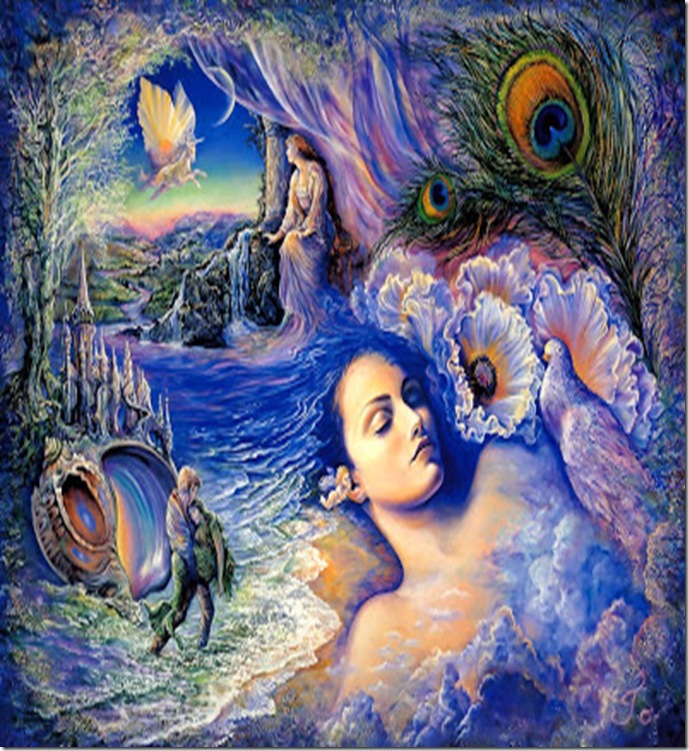
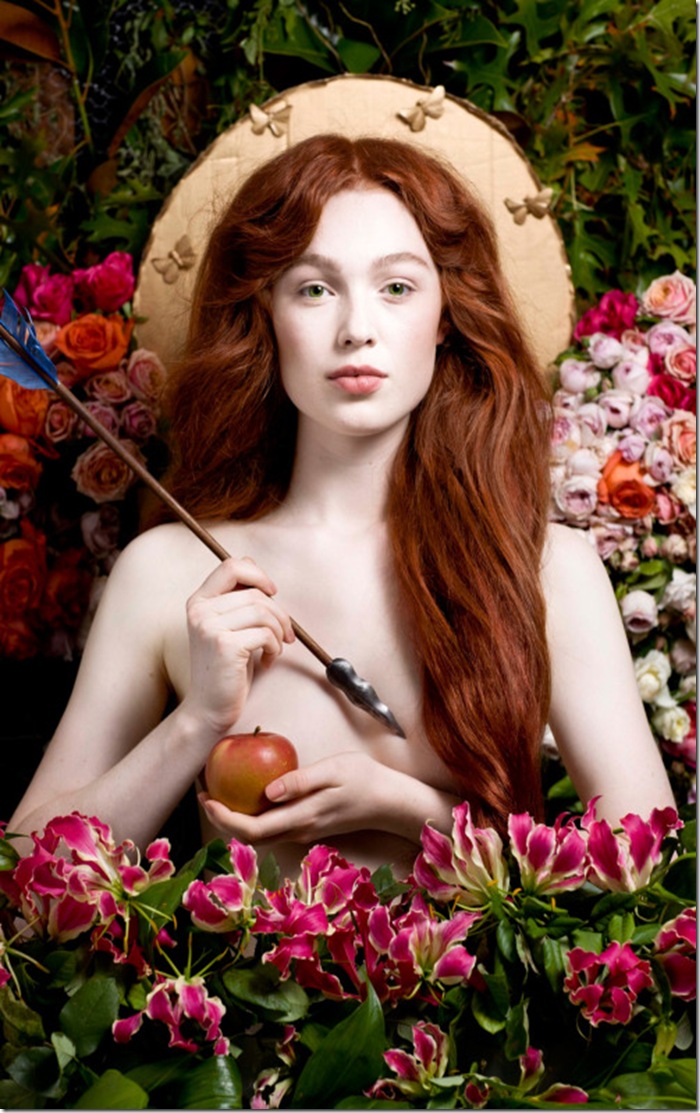
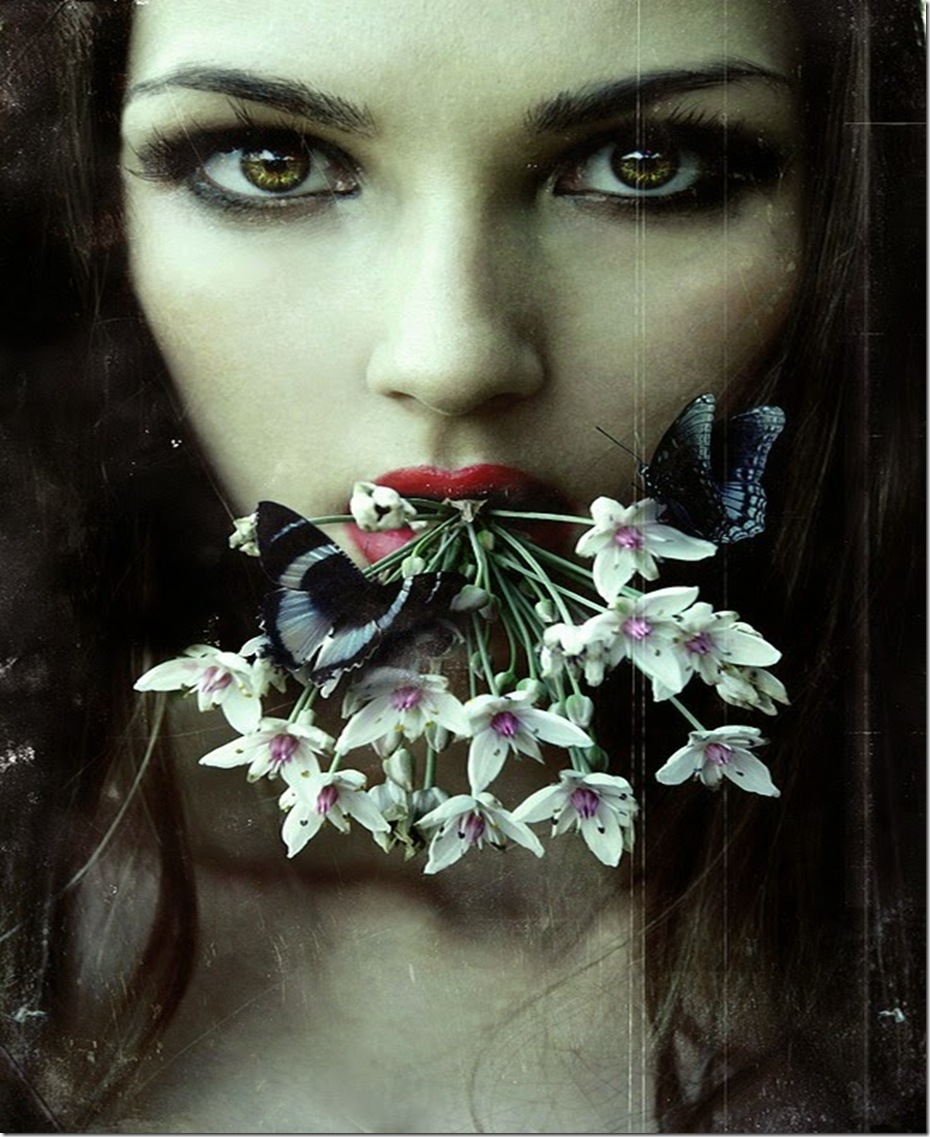
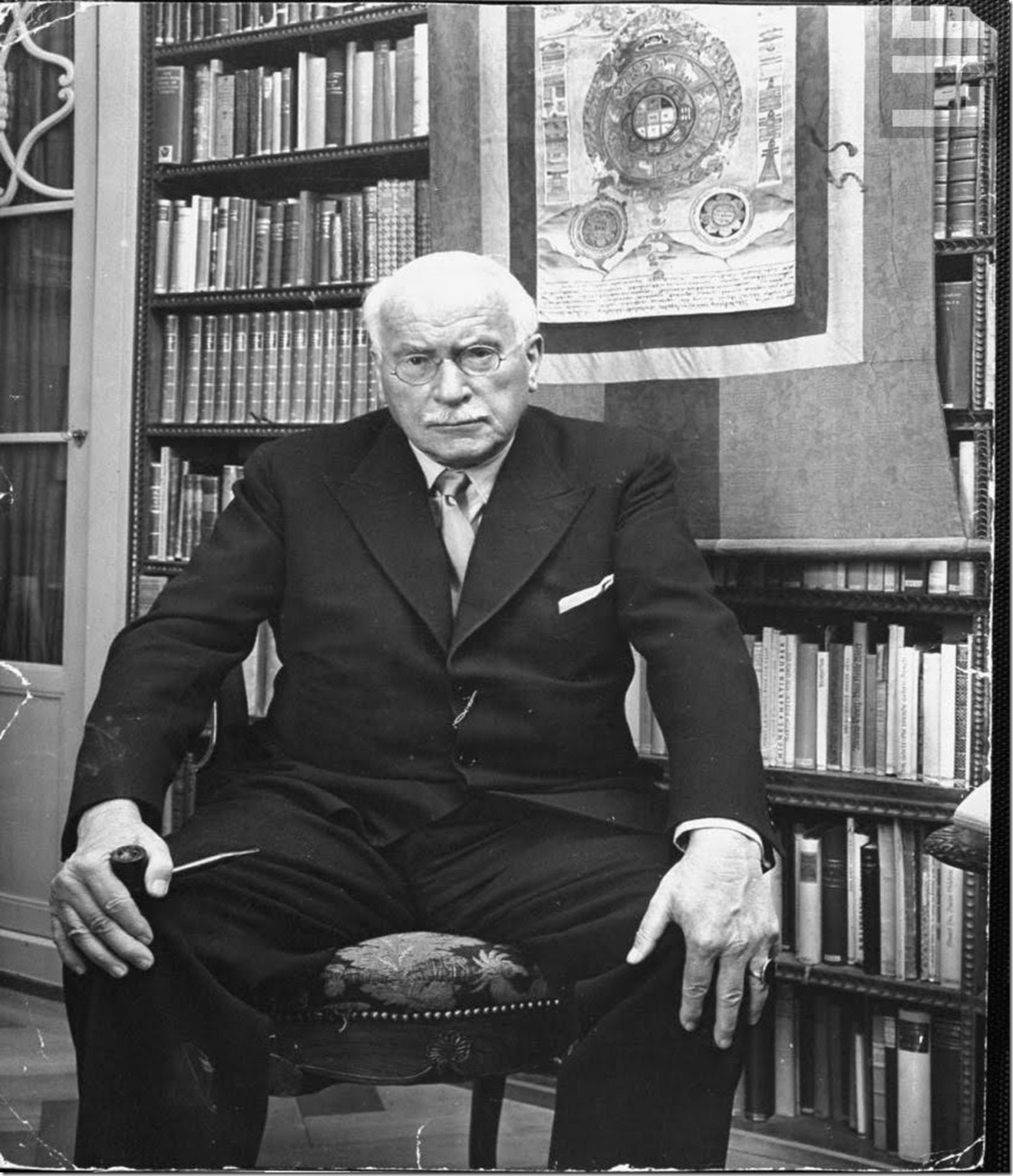
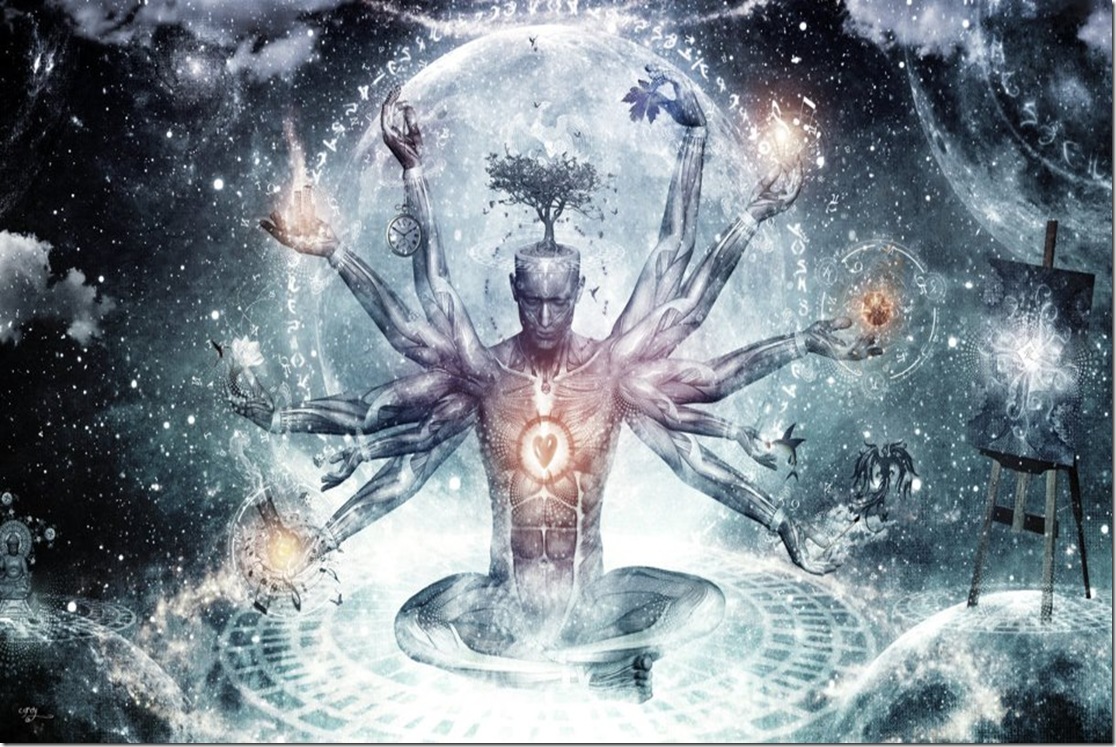


Excellent post… I truly believe that Jung’s idea of unconscious collective is accurate as there are Gods and Goddesses representing same values in different cultures and same thing applies to certain symbols, for instance the mandala or the cross…. and that regardless of their meaning…
Thanks for sharing… All my best wishes. Aquileana ⭐
Yes, the Symbol it’s key to understand how we work at a subtle level, thank you Aquileana, for your comment, as usual is much appreciated! 🙂
Dear Aquileana, you fully expressed here my personal convictions! Thank you, too, for your answer and have a good week. Cari saluti Martina
Thank you Martina! 🙂
Very inspiring. thank you. After ages of running diwn blind alleys of computer tech, the AI community finaly understood that the human brain processes PATTERNS and extracts symbols out of perception by correlation. Very visual fast and parallel. Some of those sybols we recognize by the way we are wired , some we have learned in childhood play and some are culturaly reenforced by confirming eachother. Semantics are build on these. i have a personal symbol I see everywhere all day. Very strange. i will send you.
Thank you for the information you provide with your comment, it’s very interesting, and sure send the symbol, I appreciate your comment! 🙂
Reblogged this on georgeforfun.
Thanks kindly for all your Likes,I feel honoured,you are a great contemporary thinker!If there were more people like you,our societies would be healthier …
1 Corinthians 5:6-8 New King James Version
6 Your glorying is not good. Do you not know that a little leaven leavens the whole lump? 7 Therefore purge out the old leaven, that you may be a new lump, since you truly are unleavened.
A little of new leaven can go a long way, I thank you for the compliment, no merit from my part, but the new leaven. 🙂
very interesting post
Thank you for your interest! 🙂
inspiring blog, I’m following
Thank you! 🙂
thanks yourself
I have always been a fan of Carl Jung…in my early 20’s I read his book, MAN AND HIS SYMBOLS. I was very impressionable and coming from a large rural family, and being the first to leave to attend college, the word “individuation” became my penchant. Now that I am older and grayer, I wonder if Individualism took me too far…and I misconstrued “individuation.” In any case, I think Individualism has gone to the extreme in this country—I think that is one reason for the GREED in so many…I think it is one reason we are so ready to throw our best friend to the sharks if it will save us…It seems there is little thought of loyalty and honor. I also see that racism is alive and strong—and I am so sorry to see this—then, I think, it was there all along, we just did not admit it. I think Americans tend to be isolationists and we miss so much by not expanding our view to build bridges instead of walls. I think your final quotation from Einstein is so spot on! We are hell bent on destroying the giftedness of so many…and Mother Earth is being tested to her limits! We have forgotten to be good stewards of Mother Earth and we have forgotten to care for each other. I agree with all you have written about SYMBOL—I think we need to reflect and BE…and pay closer attention in the QUIET that we continue to run from! It is in the QUIET that our intuition will be allowed to speak and if we listen well, we will hear how to love each other again…and how to love our Mother Earth! Thank YOU for helping me to think this morning…you have given a great gift! Now I am reminded of a bit more of what to do with my life. THANK YOU! and thank you for your visits to my blog!
Thank you for your thoughtful comment! 🙂
Jung’s anima and animus became important to me in a recurrent dream that I finally analyzed correctly (according to a friend who was a Jungian psychiatrist) and made a difference in my life. His symbols and collective unconscious are guidelines for all of us. Thank you for this informative post and kudos to Jung.
Very interesting summary and it feels true. My science buddies would love that statement. I followed my heart call and went from a connection to nothing, to feeling a part to play in saving ourselves. Symbol and meaning indeed. I have continued to find explaination of what I am feeling after the fact, which only encourages me further. I have been exploring the depths of my soul and it feel boundless. Carl Jung is a modern day Shaman to me, showing us the way.
It’s a lifetime process, states come and go, seek stations, thank you for your comment! 🙂
Excellent post. Strange enough, I started an abstract artwork, lots of symbols. Some sentiments can be best expressed through symbols.
Thank you for visiting my blog.
You are welcome, and thank you for your comment! 🙂
The archetypes – not only a collective conscience but one that transcends time.
Thank you for your comment! 🙂
Reblogged this on Kev's Great Indie Authors and commented:
Anyone who loves symbols, dreams, or psychology in general must love Jung. 🙂
We do, thank you for reblogging, and your comment! 🙂
You are most welcome… I really enjoyed the post. 🙂
Fascinating post. Jung brought so many interesting concepts to the forefront of psychology and spirituality that persist today. He pushed paradigms regarding the human experience and created a whole other way to interpret experience.
Thank you for your comment! 🙂
Really enjoyed this. Many thanks.
You are welcome, thank you for your comment! 🙂
I begin to discover the archetypes beneath the symbols in my dreams and visions and expressed in my life. I always try to go back to the source and first principals. I will not take anyone’s word for it. I realize I have always known these core themes in myself and others’. Jung brought so much back to us. Is it true that maybe we only have 1% of the original knowledge? I begin to meditate on the ancient Hermetic mandalas and try to let the symbols connect with my thoughts in balance. I have never known such peace. I wonder where this path will lead. Thank you for your great wisdom and willingness to share.
An old Teacher of mine liked to say: Answers exist before the questions, to believe otherwise it’s a mistake, part of the human condition.
Keep doing whatever brings you to discover those answers, ironically mostly consist in putting aside thoughts or what we call the mind, and just experience Being, and that is true meditation.
Thank you for your comment. 🙂
.
I write my Zen poetry moving without knowing or thinking. I have been exploring my soul through spontaneous creativity. Something all should incorporate into their practice IMHO and you are naturally drawn to create if you are dancing with yourself I think.
Great! 🙂
Three cheers for Jung (and others of course, but he’s closest to my heart)!
Thanks for stopping by and liking a post on The Expositrix!
You are welcome! 🙂
Ah yes, symbols. I enjoyed reading your personal thoughts on the words unconscious versus subconscious, and why you lean toward the subconscious usage. Symbols point us toward deeper meanings and I find that more and more people are craving seeing symbols, which is shown by, for example, the trend for tattoos of ancient symbols. Perhaps it is because people want to think deeper about life and, if that is why, I am happy, as so often I see those who live only at surface level. Thank you for a post that has sent my mind into play! 🙂
I am grateful to you for reading, and commenting my post, yes meaning can be transformed into something else, by the wrong use of words.
Symbols are a language that talks to our subjective Self, about a deeper meaning hidden from ordinary consciousness.
People have a need for meaning expressed by Symbols, and I guess tattoos it’s a permanent reminder of the particular symbol people want to wear in themselves, being these symbols, positive, or negative, according to the symbol itself, and the meaning they convey.
I am glad you this post was mind stimulating, for you! 🙂